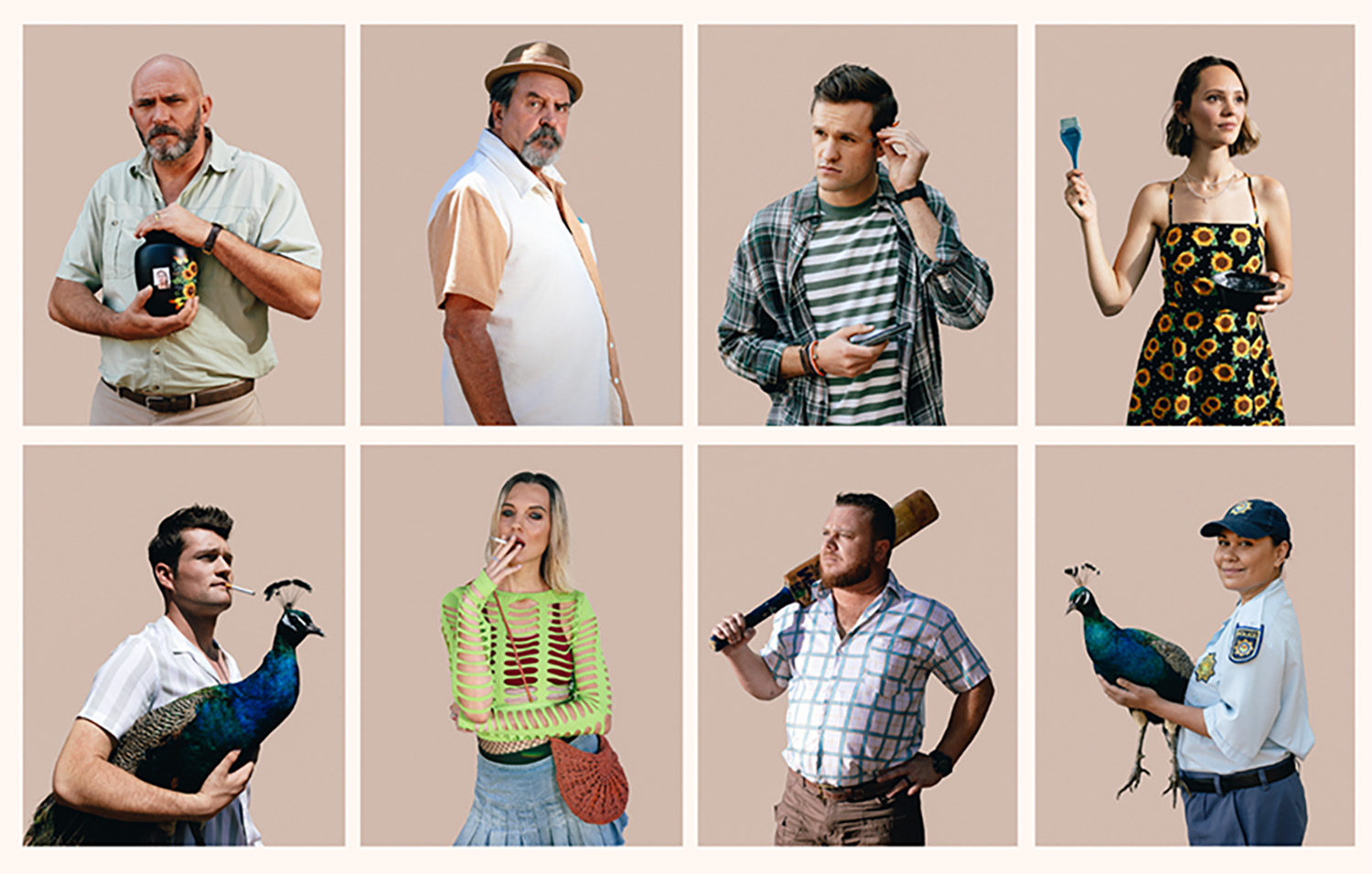
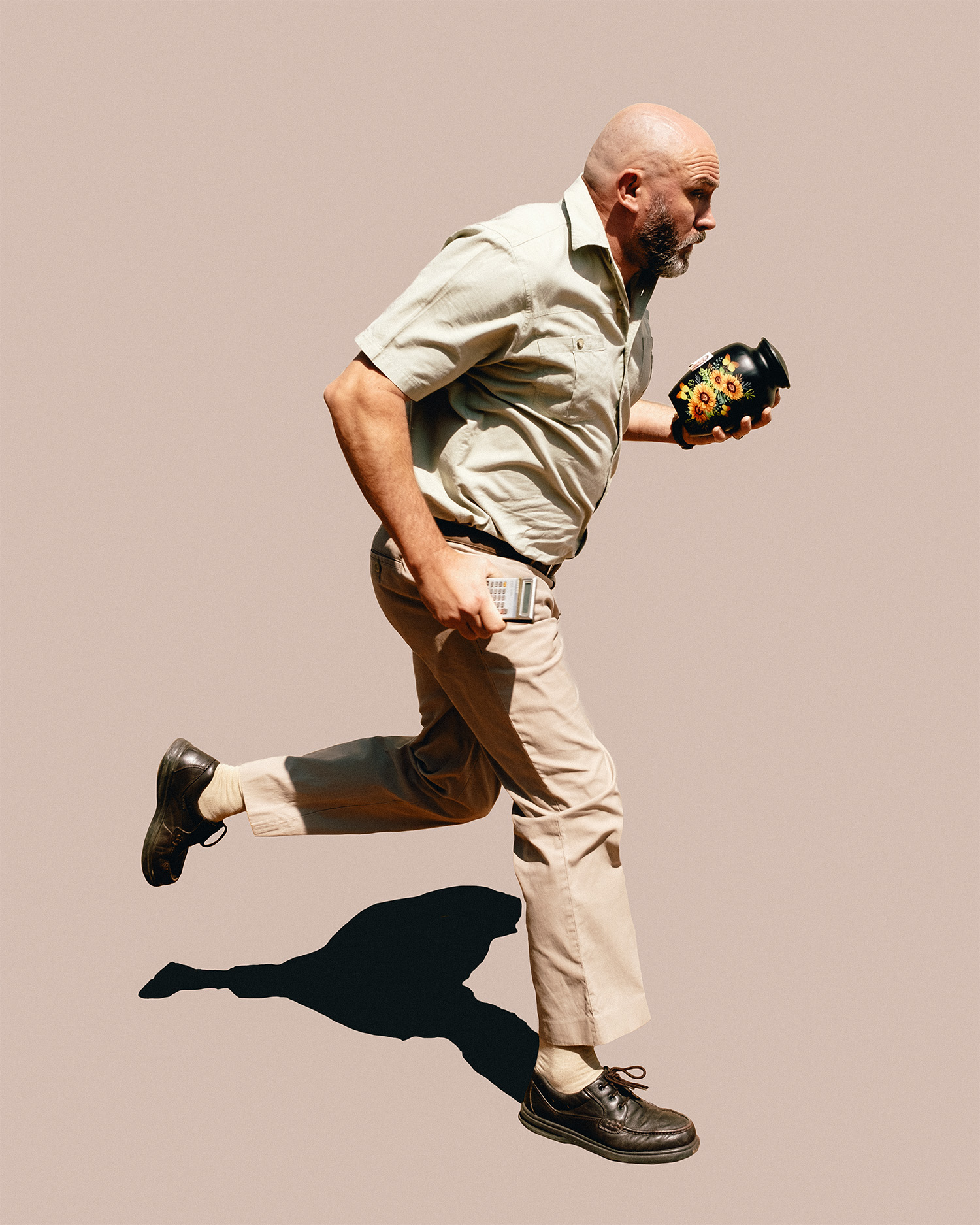
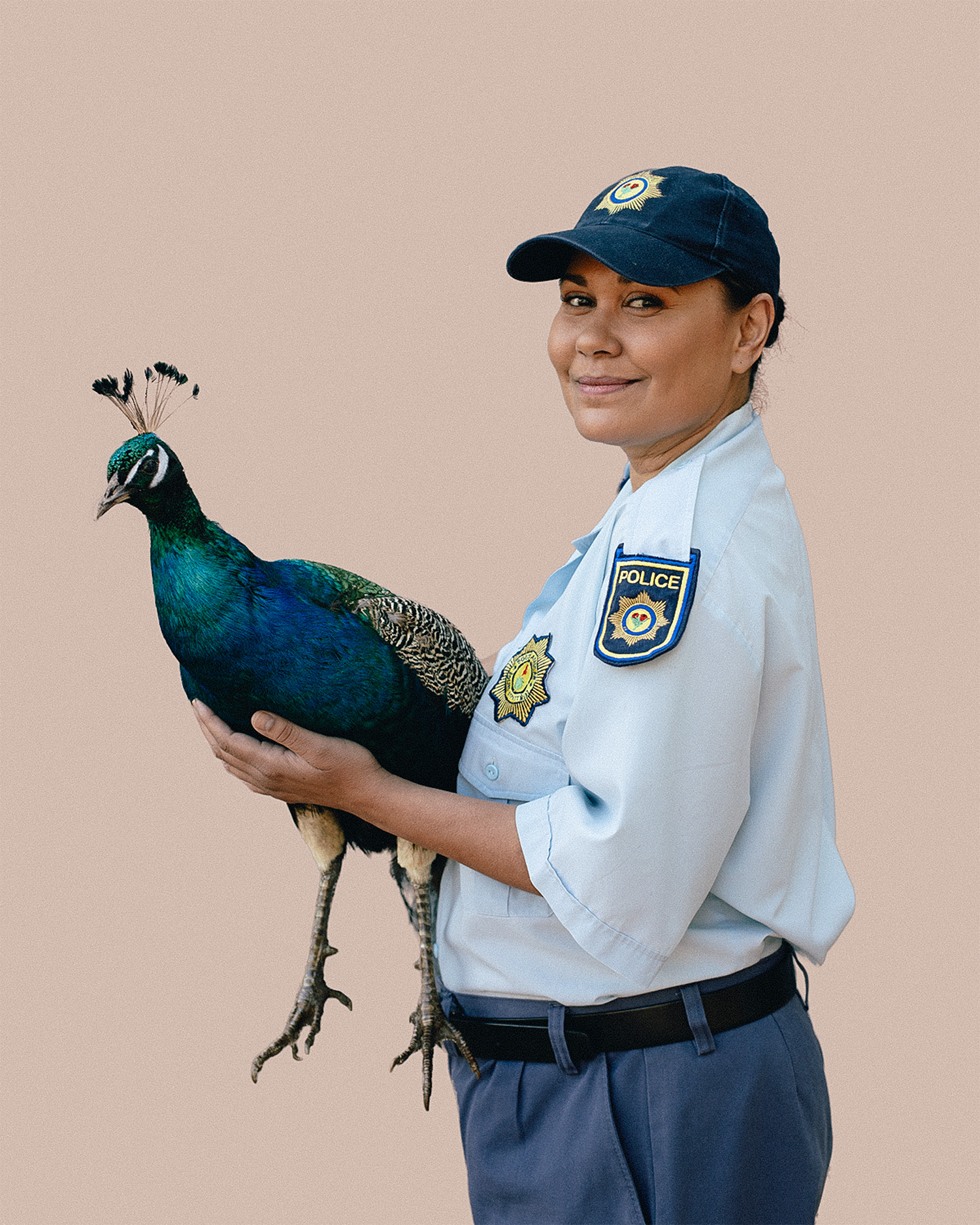
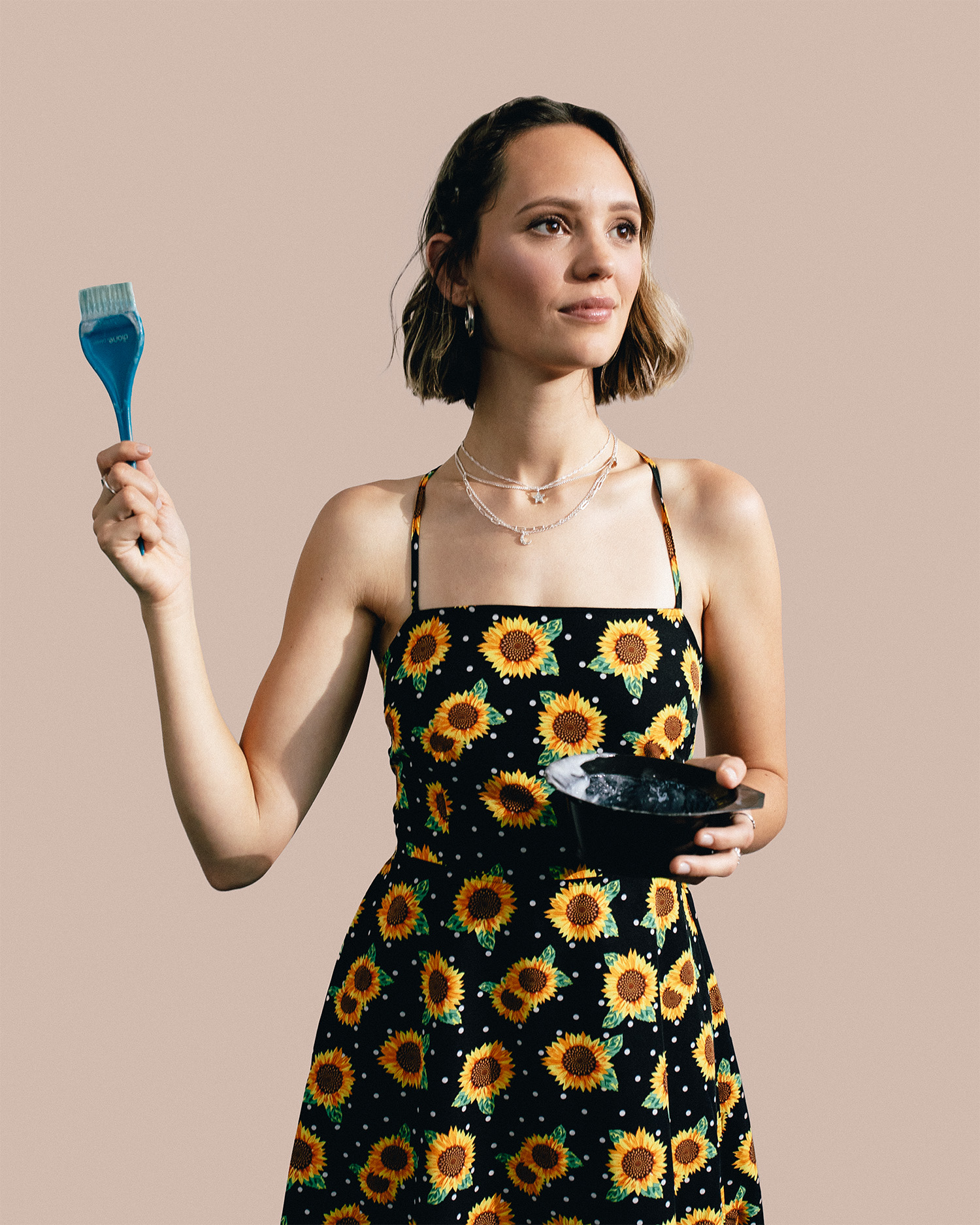
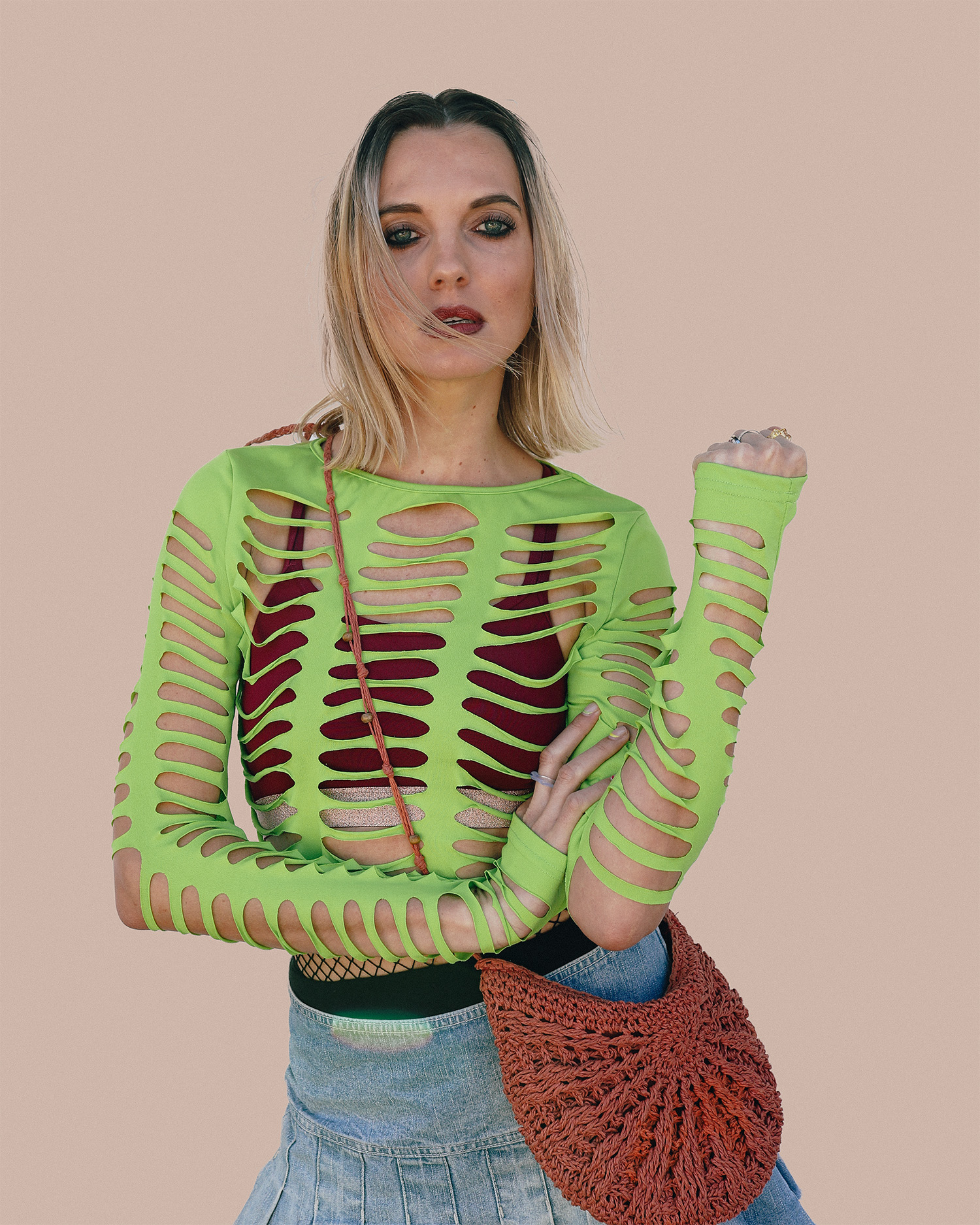
Feature film: Som van twee
Som van twee, a comedy drama movie with the charismatic Louw Venter and the ever-brilliant veteran James Borthwick leading the cast, marks the directorial debut of actress Simonè Pretorius.
The story develops around a cringeworthy faux pas of Henk (Venter) at his wife Nicolene’s funeral when he confesses to leaking the Maths paper way back during his matric exam. When the Education Department subsequently rules that the entire class of 1990 must rewrite the paper, he asks his son Renier (Adriaan Havenga) to tutor him, but it’s a struggle from the start. Their father-son relationship has always been strained and marked by conflict. Henk’s father Gert (Borthwick) also interferes constantly, and things go awry in no time.
Simonè talks about her first venture as director.
Where does the idea for Som van twee come from?
It’s hard to believe, but it’s based on a true story. My fellow screenwriter, Liani Janse van Rensburg, discovered an article about a woman in the Netherlands, Melissa Kelderhoff, who admitted at a school reunion that she saw her Biology paper before writing the final exam. The story reached the Minister of Education, Culture and Science, who then decided that the country’s 1992 matric group had to rewrite the exam.
Of course, we adapted and changed the story extensively.
I’m curious about the selection of the actors. Were any of the roles written for specific actors?
I had two actors in mind for each of Henk and Gert’s roles, but the more I refined the text, it became increasingly clear that I couldn’t use anyone but Louw Venter and James Borthwick.
The casting was the most important part of this film, and we were looking for actors who excel in both comedy and drama, especially for the characters portrayed by Louw and James. Louw, especially, brought a lot of dynamic to his character. He personified the character’s charisma in a way I could not put in words when writing. And James is without doubt one of the best actors I have worked with. It is amazing to experience his sense of humour and commitment.
Adriaan Havenga’s audition took me by surprise. He brought a gentle innocence to his character. Adriaan attended one of my acting workshops in the past, so I asked him to come in for an audition. Greteli de Swardt was also an obvious choice; her charm and spontaneity are infectious. And the moment I saw Righard van Jaarsveld’s audition, I knew he was perfect for Basjan. I informed him during the callback already that the part was his.
The character of Petrus was written one hundred percent with Pierre Breytenbach in mind. Also, the role of Fanie, who is played by my brother-in-law, Ronnie Dombai. He is not an actor, but when I wrote Fanie’s dialogue, his voice was always present in my head. One evening at a braai, I stuffed the text into his hand and asked him to quickly act a little. I was lucky and he agreed to be in the film. I then also decided to use his wife Annetjie as the face of Nicolene.
You make your debut as film director with this movie, and you also co-wrote the screenplay. What made you decide to take the lead as director in this case?
It has been a dream for ten years. Bennie Fourie recommended that I read Judith Weston’s Directing Actors when we worked together on Vir die voëls. At that stage I regarded the book as a guideline to what directors expect from actors, but I became aware that I was reading the book with a director’s eye.
Later, with other projects, I realised it was quite tough not to want to direct myself all the time, and with the last role I played, I felt ready to take charge. At the same time, I suffered severely of imposter syndrome and doubted my own abilities.
But when I wrote my first screenplay in 2019, I started feeling confident about my journey to becoming a director. It took five years and three undeveloped screenplays on the shelf, but I am grateful that the road led me here.
Did the screenwriting make your work as director easier?
Without a doubt! It took many rewrites of the screenplay before the characters finally settled and the themes come through adequately, so it was important to drive the process through to the floor before allowing the actors to further breathe life into the characters.
While I was writing, I directed all the performances in my head, and while directing, I rewrote the script. It worked out well.
Which themes were important to be highlighted during filming?
That our parents can’t be who or what we need them to be indefinitely. They also have baggage to deal with. And sometimes, if we are prepared to admit that we are also imperfect, it helps us to reconcile with them. After all, we are sometimes more like our parents than we would care to admit.
A striking and special aspect of the film is how it appeals to audiences, precisely because sorrow and sadness have no boundaries. Was this on purpose?
I don’t think it was on purpose. Pain is a natural unifier, and I wanted the audience to sympathise with Henk. It helps when you witness somebody’s darkest moments.
Was it clear from the beginning that you would work within the framework of both comedy and drama?
It came naturally. These are the types of stories that influence me most. I am a huge proponent of comedy drama, because I find it to be closest to the truth. Comedy makes you feel relaxed and happy, while drama fosters understanding between people. One needs both.
You worked with a wonderful team – from the talented actors to Dries Scholtz as the editor. What stands out from your teamwork experience?
Dries has the inspiring ability to take you by the hand and involve you in things you think you can’t handle, and to share his slice of pie generously. It is a privilege to work with him. He also understands that family is priority, and he has compassion and respect for working moms. We make a great team.
This movie happened after you became a mom. Did motherhood make you view the story in a different light?
I don’t think it made me look at the story differently; it perhaps changed my approach to the project – in a more courageous way. There is something about the disillusionment of a newborn, the discomfort of pregnancy, raising a toddler with tantrums, and keeping many balls in the air simultaneously, that make you stop worrying about minor things. You succeed while being under pressure.
You also tell stories and put yourself out there with all your shortcomings, because, firstly, you need the creative outlet, and secondly, you realise you don’t have much to lose. Suddenly you don’t lose track of your creative journey because of criticism from the peanut gallery. You are okay with being vulnerable, you know which opinions are important, and you know that when you go home, those three faces waiting for you, fulfil your life to such an extent that criticism can’t destroy you anymore.
So yes, motherhood made me put on my metaphorical big girl panties, which allowed me to tackle this film fearlessly.
